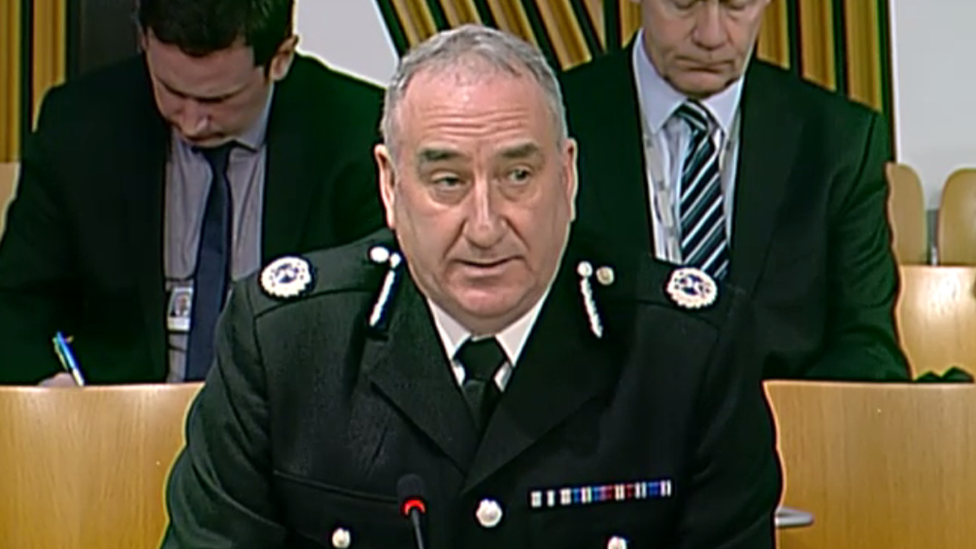Senior officer quizzed on police spying rule breach
- Published

A senior police officer has been explaining to MSPs why Police Scotland broke new spying rules to obtain details of a journalist's sources.
The force has admitted it carried out the surveillance without gaining the necessary approval from a judge.
Assistant Chief Constable Ruaraidh Nicolson said an officer misinterpreted a recent change in regulations.
He said the force was concerned leaked information about a murder probe could harm a future court case.
The Interception of Communications Commissioner said in November that the force had obtained communications data without judicial approval on five occasions.
Investigative journalist Eamon O Connor has previously told the ┤¾¤¾┤½├¢ he believed his communications were intercepted in an attempt by Police Scotland's Counter Corruption Unit to uncover his sources within the force.
He had been investigating the police inquiry into the 2005 Emma Caldwell murder.
Appearing before , Mr Nicholson confirmed the unit had been asked by "someone external" to find out how sensitive material got into the public domain.
He said there was an awareness the new rules had come into force requiring judicial approval for this type of interception of communications.
Details of the rule change were supposed to have been circulated but had not reached the "single point of contact" within the Counter Corruption Unit, he said.
'Misinterpretation issue'
Mr Nicholson said the failure to obtain proper authorisation was a "misinterpretation issue".
He also confirmed that powers to intercept communications had been used in relation to journalists on seven other occasions but insisted they involved journalists' sources rather than the journalists themselves.
The justice committee had wanted to question four officers directly involved in the case - Det Supt David Donaldson, Det Insp Joanne Grant, Det Supt Brenda Smith and Ch Supt Clark Cuzen.
However, the force said "critical legal issues" prevented that - and instead put forward Mr Nicolson to give evidence.
The committee expressed disappointment that the four officers were not being made available and that not all of the 16 questions put to Police Scotland had been answered.
The breach of the rules is also being investigated by an Investigatory Powers Tribunal and HM Inspector of Constabulary in Scotland.
- Published7 January 2016
- Published15 December 2015
- Published6 August 2015